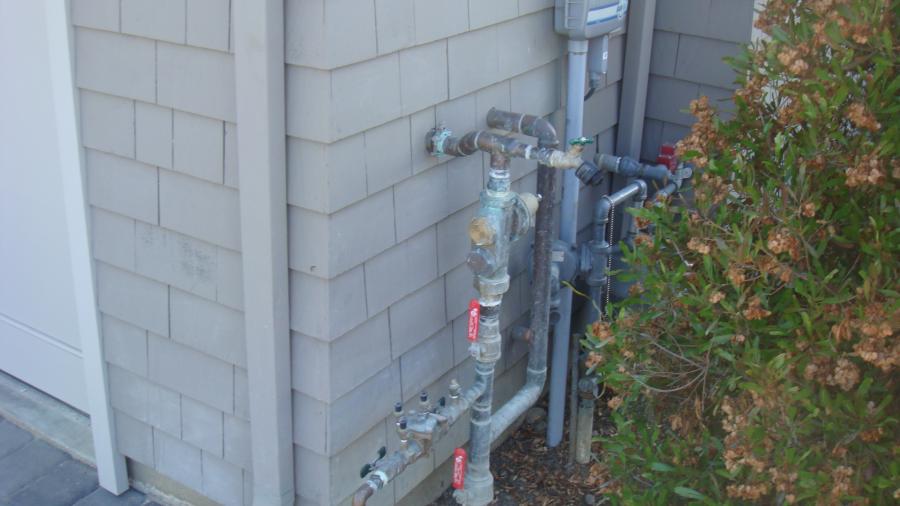Re-pipe to Improve Water Quality and Pressure
If the tap water in your home has a foul smell, discoloration or a metallic taste, it could be the result of corrosion in your water pipes. This is particularly likely if your home has galvanized pipes, which were installed in many homes built before the 1960s. Galvanized pipes are comprised of steel that’s coated with a layer of zinc to extend the life of the pipes and resist corrosion. However, this layer of zinc erodes over time, which allows “scale” to build up on the inside of the piping. Besides adversely affecting water quality, another common symptom of corroded piping is a reduction in water pressure, which occurs as the accumulation of scale gradually clogs the pipes.

If you experience poor quality and reduced pressure of the water in your home, the culprit may be corroded galvanized piping. Photo: Mike Testa Plumbing (2013)
Beyond water quality and pressure, galvanized water pipes present a major concern in homes that currently or previously have had lead service lines. As the galvanized pipes corrode and form rust, residual lead that has become embedded in the interior walls of the piping may be released and transmitted to the tap water. The only way to ensure lead isn’t conveyed from plumbing to tap is to completely replace both the galvanized plumbing and lead service lines. Even if all lead service lines have been replaced, the remaining galvanized piping may continue to be a lead source in drinking water long after all originating sources have been removed.
If your home still has galvanized water piping, it’s recommended that you re-pipe your system with either copper or plastic. While either of these materials will serve to remediate the negative effects of galvanized piping, each carries its own pros and cons. Due to its lightweight character, plastic piping is the least expensive to install, whereas copper’s reliable durability has made it a favorite, particularly in areas where water reaches freezing temperatures during the winter.
To find a Diamond Certified sewer line contractor in your area, click on one of the links below:
Alameda County: www.diamondcertified.org/alameda-sewer-line-contractor
Contra Costa County: www.diamondcertified.org/contra-costa-sewer-line-contractor
Marin County: www.diamondcertified.org/marin-sewer-line-contractor
San Francisco: www.diamondcertified.org/san-francisco-sewer-line-contractor
San Mateo County: www.diamondcertified.org/san-mateo-sewer-line-contractor
Santa Clara County: www.diamondcertified.org/santa-clara-sewer-line-contractor
Santa Cruz County: www.diamondcertified.org/santa-cruz-sewer-line-contractor